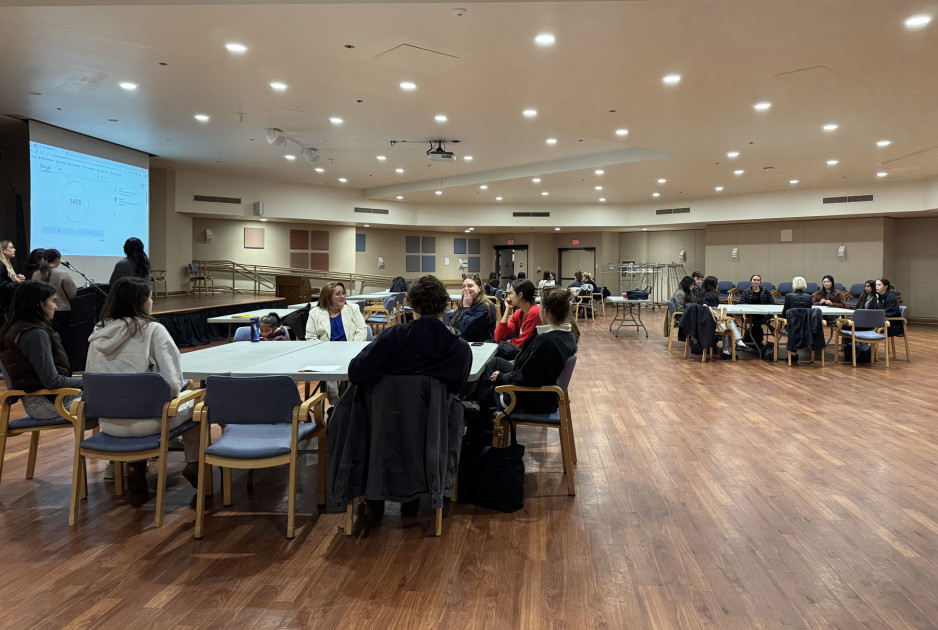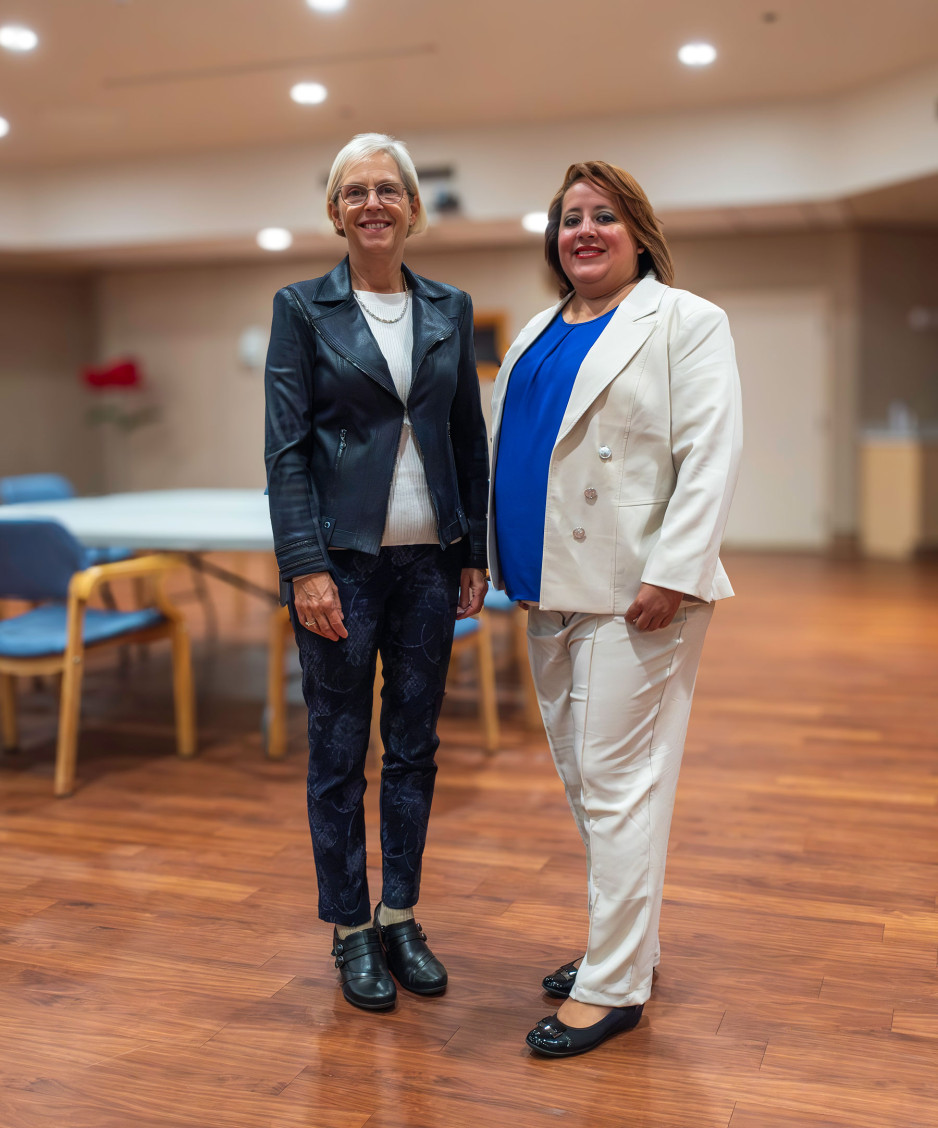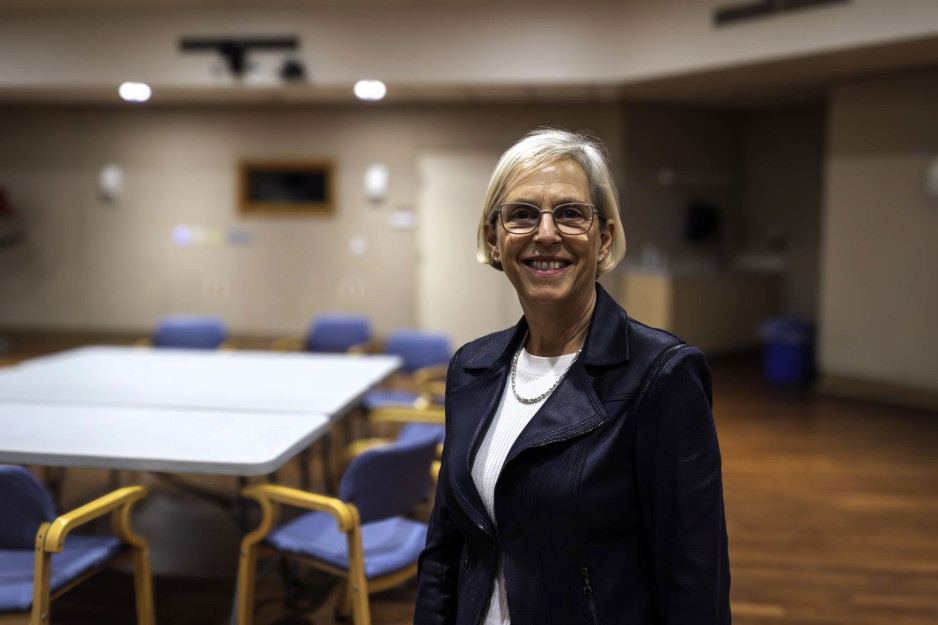Listening to what matters most
After sharing his rehabilitation story with a room full of Western University students, local filmmaker Jason Gray quoted post-apocalyptic television show, The Last of Us.
“Paying attention to things; it’s how we show love.”
The words struck a chord with fourth-year undergraduate student, Vaishnavii Sridaran.
“Paying attention goes beyond individual interactions,” she says. “It’s also about noticing where things could be done better.”
Sridaran and her classmates from Western’s School of Health Studies are currently participating in a fourth-year course called Conceptual and Practical Basis for Rehabilitation Practice. The course is co-led by Lawson Research Institute researchers, Dalton Wolfe, Stephanie Cimino and Stephanie Marrocco.
The course encompasses a full-year practicum placement at St. Joseph’s Health Care London’s Parkwood Institute with weekly seminars to enhance their learning. This month, students paid attention to gaps in care when speakers from St. Joseph’s Care Partnership Office shared their health care journeys.
Care partners are patients or loved ones of patients who have received care at St. Joseph’s. The Care Partnership Office connects them with initiatives across the organization to amplify and include their voices. Care partners can be found participating in hiring panels, sitting on patient and family councils, and engaging listeners at speaking opportunities, like this seminar.
“Through these stories, students gain first-hand understanding of how care partners support loved ones and interact with the health care system,” says care partnership consultant Heyli Dayaratna. “Hearing these lived experiences can shape their future approach to care.”
Stroke survivor Fressia Rivas was among those telling her story. When seen in hospital, she was told only that she had a tear in her artery and to return to the hospital if symptoms arose, the students heard.
“What kind of symptoms? How am I supposed to feel? I had so many questions during that time, but if they're sending me home, it's not that bad,” Rivas remembers thinking.
“I think there's a common belief that increasing the speed at which we move patients through the system will make health care more efficient. Real efficiency isn’t just about moving people through the system faster—it’s about understanding their needs, their challenges, and their experiences.” - Julia Parybak
After pushing herself to return to work, Rivas’ condition worsened, with dizziness, headaches, nausea and difficulty walking bringing her life to a standstill. It would be a year before she heard the word ‘stroke’ to describe what had happened to her, she told the students.
For the first time, she says, “I knew where I stood .” Having the words to understand her condition finally set Rivas on a path to recovery and self-acceptance.
For Noah Sternberg, who is interested in pursuing physical or occupational therapy, hearing stories like Rivas’ gave him a fresh perspective on the transformative power of rehabilitation.
"[It] has the absolute power to turn a patient's life around,” Sternberg says. "The rehabilitation process takes place during very influential periods in people's lives. When done right, a patient can become a much better version of themself.”
Heather McCallum, a retired occupational therapist, shared her story from the viewpoint of a caregiver. She realized how little her career in health care had prepared her for navigating the system when her 19-year-old son was in an accident.
Because her son was an adult, McCallum couldn’t get details about his condition. As she stood in the emergency room fearing for his life, what McCallum needed most was empathy and information. Both were scarce. At every step in her son’s recovery, McCallum fought to be involved. Still, she wasn’t given enough information to feel prepared for how their lives would change.
Today, McCallum describes St. Joseph’s as being “ahead of the game” when it comes to working with care partners, a concept that didn't exist at the time of her son’s accident in 2010.
“There is tremendous value in having care partners share their stories with undergraduate students who are about to embark on their career journeys,” says Olivia Crozier, a graduate teaching assistant for the course. “As aspiring health care professionals, researchers, and leaders, we hope that students take what they learn and apply it in their future career aspirations.”
Olivia and her fellow teaching assistants are instrumental in organizing these unique learning experiences for students. After hearing the care partners’ stories, the students had an opportunity to ask questions, listen and engage with those who matter most when it comes to health care.
“It was surprising to see how much common ground there was between each story, even though the stories themselves were so different,” says Julia Parybak, a fourth-year student interested in physiatry and paediatric medicine. “There's a common belief that increasing the speed at which we move patients through the system will make health care more efficient. Real efficiency isn’t just about moving people through the system faster—it’s about understanding their needs, their challenges, and their experiences.”



